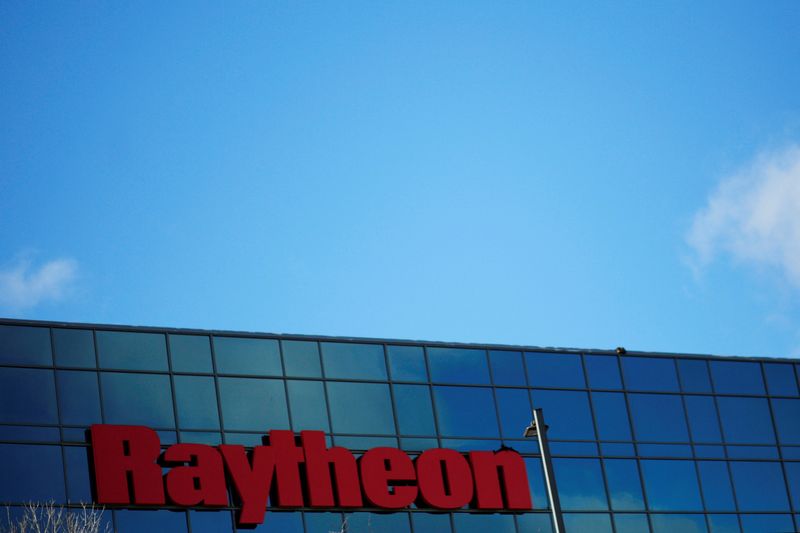U.S. successfully flight-tests Raytheon hypersonic weapon -Pentagon
2022.07.18 23:17

FILE PHOTO: A sign marks the Raytheon offices in Woburn, Massachusetts, U.S. January 25, 2017. REUTERS/Brian Snyder/File Photo
By Mike Stone
WASHINGTON (Reuters) – The United States has successfully tested a Raytheon Technologies (NYSE:RTX) Corp air-breathing hypersonic weapon capable of speeds faster than five times the speed of sound, making it the third successful test of that class of weapon since 2013, the Pentagon said in a statement on Monday.
The development program for the Hypersonic Air-breathing Weapon Concept (HAWC) is being run by the Defense Advanced Research Projects Agency, or DARPA. Both Raytheon (NYSE:RTN) and Lockheed Martin Corp (NYSE:LMT) are competing for the ultimate contract award.
Air-breathing vehicles use air captured from the atmosphere to achieve sustained propulsion. Different propulsion types work in the vacuum of space.
There have been four air-breathing hypersonic weapons tests since September. Raytheon’s product has been successful both times, and Lockheed had one successful test and one failure.
“Advancing our nation’s hypersonic capabilities is a critical national imperative, and this was an important step forward. Having back-to-back successful flight tests gives us even greater confidence in the technical maturity of our HAWC prototype,” Wes Kremer, president of Raytheon’s Missiles & Defense business unit, said.
During the flight test, after releasing HAWC from an aircraft and accelerating to hypersonic speeds using the scramjet engine, Raytheon said in a statement, “The vehicle flew a trajectory that engineers designed to intentionally stress the weapon concept to explore its limits and further validate digital performance models.”
This success marks the third successful test in a string of hypersonic weapons across different U.S. programs in development.
These successful tests come after a failed June 29 test flight of a different type of hypersonic weapon, the Common Hypersonic Glide Body, at the Pacific Missile Range Facility in Hawaii.
The United States and its global rivals are increasing their pace to build hypersonic weapons – the next generation of arms that rob adversaries of reaction time and traditional defeat mechanisms. Hypersonic weapons travel in the upper atmosphere at speedsof more than five times the speed of sound, or about 6,200kilometers (3,853 miles) per hour.








